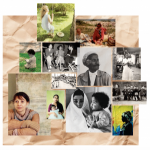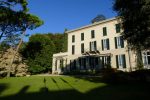Events 2018

Intercultural Education Today: Teaching Literature and Other Media – International Workshop
December 10 to 12, 2018
The international workshop organized by MIS deals with teaching literature and other media in Intercultural Education. It explores in how far intercultural education can exploit this subversive dimension of aesthetic media and make use of literature and other arts to foster more precise and critical reflections on the foundations of social cohesion and on the mobility, diversity and potential ambivalence of cultural elements and structures.
The workshop took place on 10‐12 December 2018 at the University of Luxembourg in Belval.
Discourses on the conditions under which people of different cultural backgrounds live together have always influenced political movements. In recent years, the fact that migration has received much more attention than in the past, has intensified this influence (most prominently, but certainly not exclusively, in populist rhetorics). Especially for children and adolescents, it is difficult to understand the diversity of concepts and opinions developed in this context. Schools should play a central role in helping students to develop a critical judgment with regard to these discourses, to think beyond stereotypes and to cope with the insight into the contingent foundations of what we call cultural identity. In addition to the school subjects predestined for this purpose, such as politics or ethics, this workshop draws special attention to the teaching of literature and other aesthetic media, since they provide imaginary spaces of thought and action in which students can train their political competences.
Literature and other aesthetic media inform cultural identities, but at the same time also prefigure encounters with other cultures. They do not only mirror social and societal processes, but also participate in them – indeed, they are often instrumental in making them visible and rendering them accessible for analysis. They can thereby both reinforce and deconstruct homogenizing imaginaries of ‘us’ and ‘them’ and serve as primary sources of inspiration for processes of nation building, whilst at the same time bearing the potential to subvert precisely these processes.
This workshop explores in how far intercultural education can exploit this subversive dimension of aesthetic media and make use of literature and other arts to foster more precise and critical reflections on the foundations of social cohesion and on the mobility, diversity and potential ambivalence of cultural elements and structures. Our main question therefore is:
In how far – and how – can literary and other aesthetic media help to effectively influence the way in which students perceive and discuss cultural diversity, without re-enforcing established patterns of thinking identity?
In order to answer this question, this workshop aims to discuss general approaches, strategies and methods as well as concrete examples and suggestions with regard to both the chances and the risks of employing literary-aesthetic procedures for reflecting ‘otherness’. Certainly, the teaching of aesthetic media is a privileged way of establishing multiple perspectives on culture and of producing insights into the diversity of cultural interpretative patterns. Therefore, an intercultural didactics of aesthetic media can help, on the one hand, to effectively question and deconstruct metaphors of cultural and social homogeneity such as ‘Volk’ or nation, which are at the core of many current populist movements; this might also lead to a more nuanced reflection upon processes and experiences of migration. On the other hand, one must not forget that any evocation of concrete cultural differences, i.e., the mere mentioning of concrete cultural ‘entities’, runs the risk of (secretly) re-enforcing the very concepts of cultural identity and homogeneity that were supposed to be put into question. A major point of discussion should therefore be how to avoid such fall-backs or back-lashes.
Among the questions that could be discussed during the workshop are the following:
- In which ways can literature and other aesthetic media contribute to promoting intercultural learning? Which risks must, at the same time, be addressed?
- Which literary texts, media, genres etc. are particularly suitable for intercultural learning? Do we (once more) need to discuss questions on the ‘canon’?
- Which teaching methods are particularly suitable for promoting intercultural learning via literature and other aesthetic media? Which are the potential risks?
- Which literary, media cultural theories are worth reading anew for the field of literary/media didactics in this context?
- How should the contexts of literary/media learning deal with the claim of ‘understanding’ and with forms of ‘non-understanding’?
- How can language education support literary/media learning?
- What role can multilingual education play in teaching literature/media?
- What problems (and limits?) arise in the context of intercultural learning by teaching literature/media and what might be appropriate responses?
Project coordinators
Till Dembeck, Jennifer Pavlik

Flight – BORDER – Integration (2): Colloquium-Series on the Phenomenon of Displacement in Europe in conjunction with Villa Vigoni
October 4 to 7, 2018
The second colloquium in the series created by MIS in conjunction with ‘Villa Vigoni’ tackles the topic of BORDER. The conference took place on 4‐7 Oktober 2018.
Downloads
- Working paper “Flucht – GRENZE – Integration” by Ulla Connor (German)
- Working paper “Flight – BORDER – Integration” by Ulla Connor (English)
- Program and abstract (German)
- Program and abstract (Italian)
Project coordinators:
Luxembourg: Dieter Heimböckel, Nathalie Roelens, Christian Wille
Villa Vigoni: Matteo Scotto
Contact:
Christabel Marrama (christabel.marrama@uni.lu)

